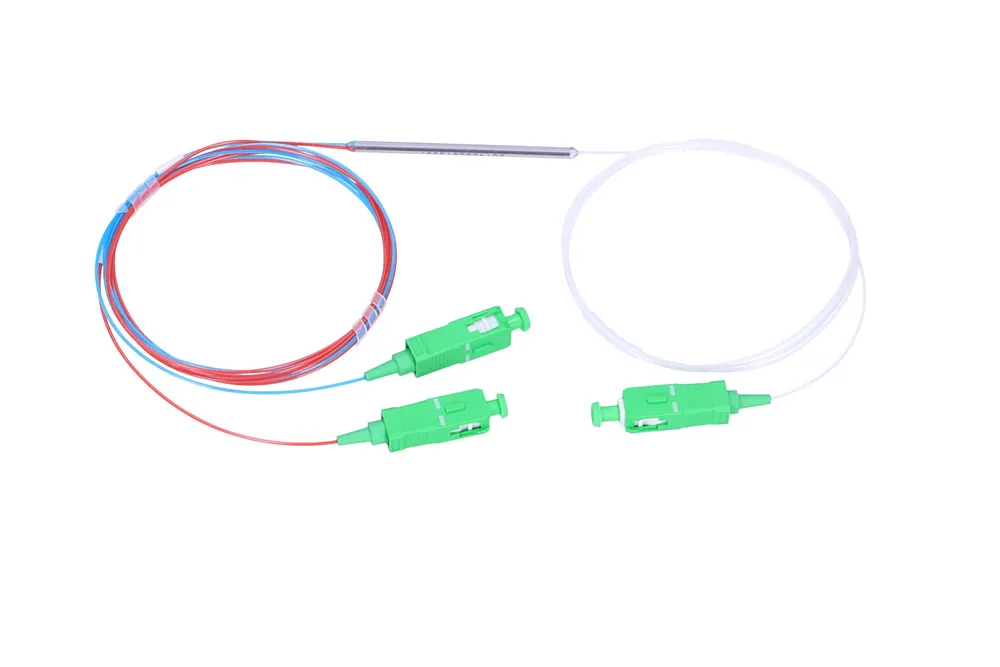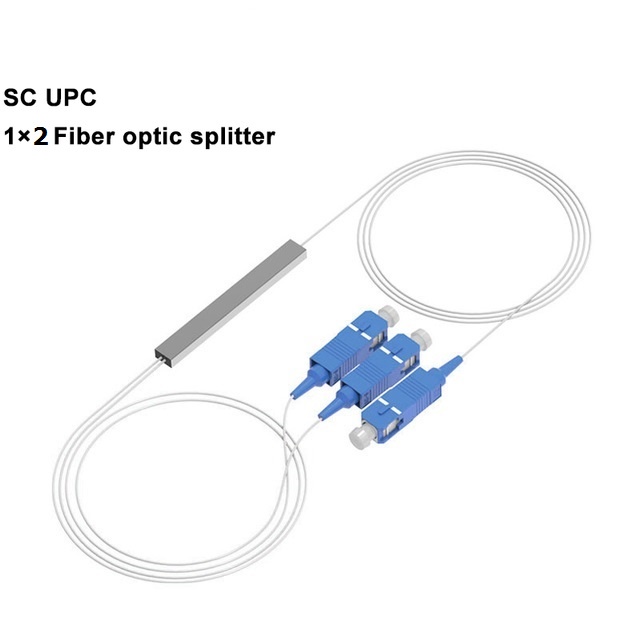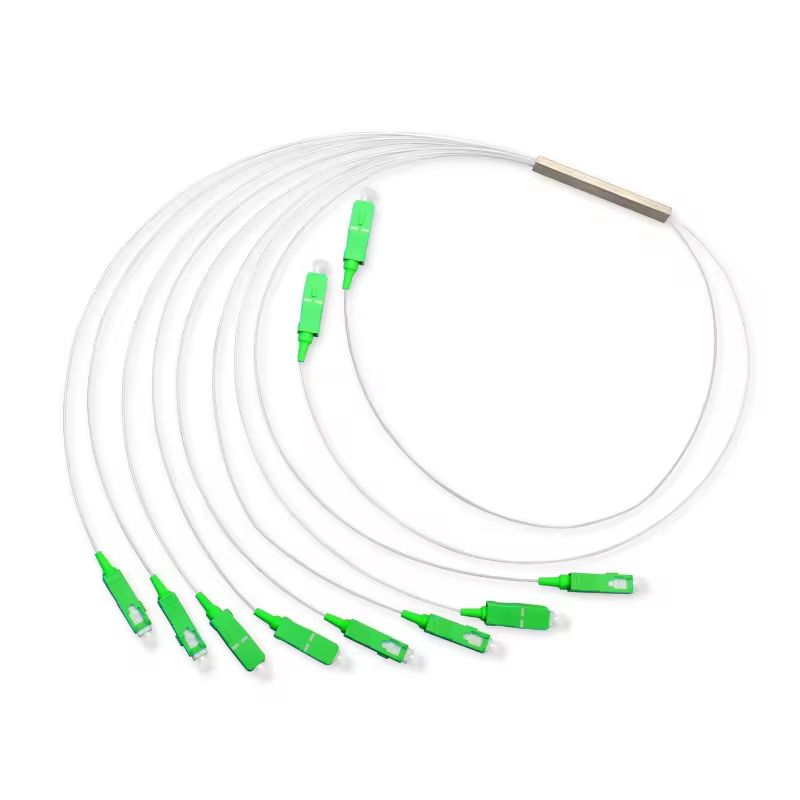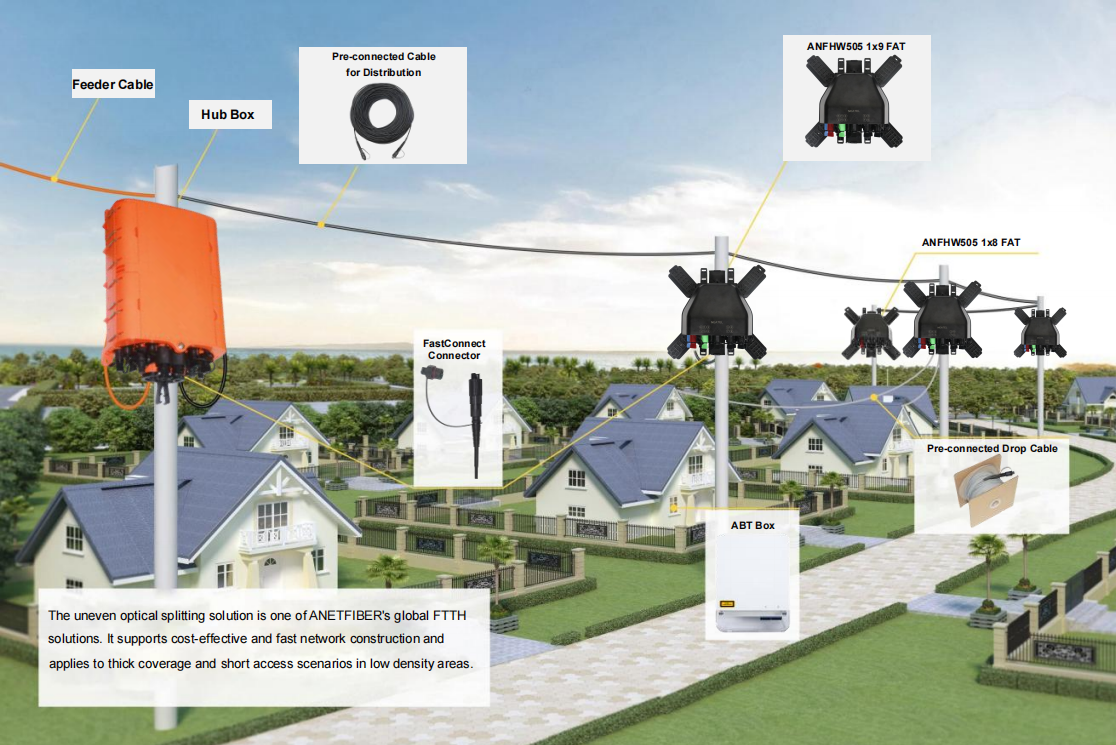2024 Comparison of FBT vs PLC Splitters: Signal Distribution Performance

Understanding FBT and PLC Splitters
Signal Distribution Performance of FBT Splitters
FBT splitters are known for their balanced signal distribution, ensuring even transmission of signals across different output ports. These splitters find wide applications in fiber optic networks due to their reliable signal distribution capabilities, contributing to the overall efficiency of the network.
Signal Distribution Performance of PLC Splitters
On the other hand, PLC splitters offer unbalanced signal distribution, directing varying signal strengths to different output ports. They are recognized for their efficiency in transmitting signals with differing strengths to various network components, thereby impacting the network's performance differently.
Signal Distribution Performance of FBT Splitters
Advantages of FBT Splitters
FBT splitters offer several advantages in terms of signal distribution performance. One key benefit is their ability to provide balanced signal distribution, ensuring that signals are evenly transmitted across different output ports. This balanced distribution is crucial for maintaining the integrity and quality of the transmitted signals, making FBT splitters a preferred choice in various fiber optic network setups.
Versatility in Fiber Optic Networks
The versatility of FBT splitters makes them suitable for a wide range of applications within fiber optic networks. Whether it's for distributing signals in telecommunications systems, data centers, or local area networks, FBT splitters excel in reliably transmitting signals to support the seamless operation of these networks. Their consistent performance and adaptability contribute significantly to the overall efficiency and effectiveness of fiber optic communication systems.
Signal Distribution Performance of PLC Splitters
PLC splitters are designed to provide unbalanced signal distribution, directing varying signal strengths to different output ports. This unbalanced distribution enables the directed transmission of signals with specific strengths to meet the requirements of diverse network components.

Efficiency in Signal Transmission
PLC splitters excel in efficiently transmitting signals with varying strengths to different network components, optimizing the performance of fiber optic communication systems.
The ability of PLC splitters to handle varying signal strengths ensures that each network component receives the appropriate signal intensity for its specific function, contributing to the overall efficiency and reliability of the network.
By offering unbalanced signal distribution and efficient transmission capabilities, PLC splitters play a crucial role in meeting the diverse signal distribution needs within fiber optic networks.
Application and Impact on Network Performance
Comparative Analysis
When comparing the application and impact of FBT and PLC splitters on network performance, it becomes evident that each technology has its distinct strengths and weaknesses. FBT splitters, with their balanced signal distribution, are well-suited for applications where even transmission of signals across different output ports is crucial. On the other hand, PLC splitters excel in efficiently transmitting signals with varying strengths to meet the specific requirements of diverse network components. This comparative analysis provides valuable insights into how these signal distribution technologies can be strategically employed to optimize network performance.
Enhancing Network Efficiency
Understanding the application and impact of FBT and PLC splitters is essential for enhancing the overall efficiency of fiber optic networks. By leveraging the unique capabilities of each splitter type, network operators can make informed decisions about their deployment based on the specific requirements of their infrastructure. This strategic approach not only optimizes signal distribution but also contributes to the seamless operation and reliability of fiber optic communication systems.
FBT vs PLC Splitters: A Comparative Analysis
Understanding the Technology Variations
When evaluating FBT vs PLC splitters, it's essential to recognize the distinct signal distribution technologies they represent. Each type offers unique approaches to managing signal distribution within fiber optic networks, impacting network performance in different ways.

Optimizing Signal Distribution
The comparative analysis of FBT and PLC splitters provides valuable insights into how these fiber optic splitter technologies can be strategically employed to optimize network performance. By understanding their respective strengths and weaknesses, network operators can make informed decisions about deploying the most suitable technology for their specific infrastructure requirements.
See Also
Unveiling the Wonders of Preconnectorized Cables for Indoor and Outdoor Cable Structure
Optimizing Cable Structure for Indoor and Outdoor Networks
Understanding ONU Technology and Its Role in Fiber Networks
Understanding ADSS Cable and Fiber Optic Strength Member Solutions
Comparing the Advantages of FRP and Steel for ADSS Cable: A Comprehensive Guide
About US
Follow Us
AnetFiber company's main products are indoor and outdoor optical fiber cables, outdoor waterproof pre-connected fiber-to-the-home products, PLC optical fiber splitters, optical fiber jumpers and pigtails, MTP®/MPO high-density big data product solutions, optical fiber field quick connectors and research and development molding, injection molding and production of optical fiber distribution boxes, optical fiber chassis cabinets, the market has expanded to the world, Europe, America, Asia, the Middle East and Latin America.
Address
Shenzhen City, Baoan District, Yanluo Street, Tangxiayong Community, Yangyong Industrial Road, Tonggangda New Energy Vehicle Park 406
Contacts
+86 199 2655 3586

